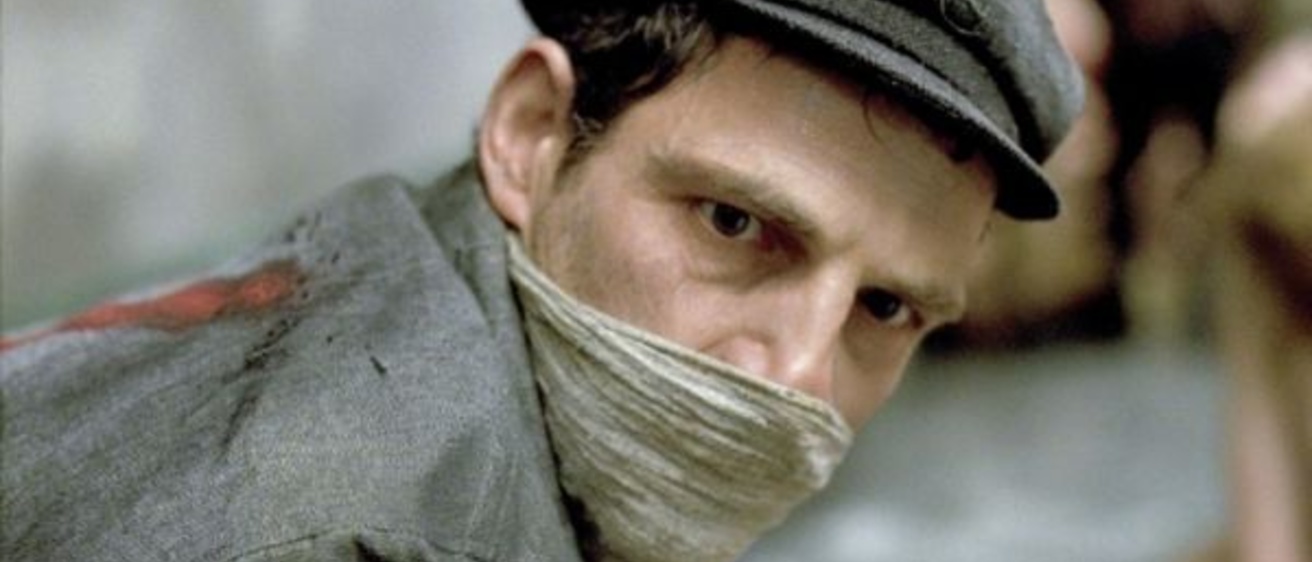By Francis Agnoli
The Holocaust is truly something impossible to comprehend. This genocide functioned as the horrific and logical conclusion of the industrial revolution, as an estimated 11 million people were exterminated with the precision and efficiency of a Ford assembly line.
No wonder so many to this day refuse to believe that such a crime against humanity could have ever taken place. No wonder the Holocaust created a permanent shift in western thought.
For the Westerner, the Holocaust is the ultimate trump card. Nothing compares to it. No other genocide, no other war crime. In the classic French New Wave film CHRONICLE OF A SUMMER (1961), an African student's criticism of French colonialism is silenced by the revelation that one of the people he is talking to is a Holocaust survivor. Even centuries of exploitation and enslavement collapse in the face of the Shoah.
This domination of the Holocaust on Western imagination has naturally led to many attempts to depict the event cinematically. The impossibility of this task should not be underestimated. How does one portray the system murder of millions, that unfathomable number?
The two most "successful" documentary attempts show how unfeasibly huge this task is. Claude Lanzmann's SHOAH (1985) tries to encompass the Holocaust over the course of ten hours of recorded testimonies and interviews. Alain Resnais's NIGHT AND FOG (1955) abstracts the horrors into a thirty-minute experimental short.
Regardless of one's thoughts on those two films, both are generally held in higher regard the numerous stabs at scripted and staged recreations of the Holocaust. There will always be a certain vulgarity to the image of actors in costumes pretend to be starving as they give their best dead-eyed stare all while speaking in clipped British accents of course.
Perhaps in the ultimate insult is how the Holocaust film has become such a commodity, how financing a Holocaust film has somehow become a sound financial investment instead of a grave undertaking. A guaranteed award-winning success instead of a solemn duty. They do not even need to be "based on a true story" and can be entirely fictionalized.
The effectiveness of the Holocaust film as awards bait (what a disgusting sentiment) has even become a joke. On an episode of Ricky Gervais's EXTRAS (2005-07), then Oscar bridesmaid Kate Winslet stars in a Holocaust film solely in order to finally win an Academy Award. A few years later, she won Best Actress for THE READER (2008).
SON OF SAUL may seem to be the latest in this series of mid-budget European film festival fodder, designed specifically to win awards and critical acclaim. The type of film that rich white liberals watch to feel good about feeling bad.
Still, SON OF SAUL is not THE COUNTERFEITERS (2007) or THE BOY IN THE STRIPED PAJAMAS (2008). It is not interested in regurgitating the "conventional" Holocaust narrative. The unusual aspect ratio, shallow focus, and constant close-ups attempt to put the audience in the numbed mindset of the fictional protagonist - someone for whom these horrors have just become something out of focus or just off screen. The success or tediousness of these methods will vary between viewers. Regardless, we are faced with the idea that this film exists primarily as a formal experiment.
The Holocaust, that incomprehensible tragedy, has been reduced to the vehicle for the "audacious filmmaking" of a first-time director looking to make a name for himself. Any other background, any other tragedy, and the film would not have won awards at the Cannes Film Festival last summer or the Oscar for Best Foreign Language Film earlier this week.
None of this is to say that SON OF SAUL is not a good film. I reacted to the subject matter as the filmmakers doubtlessly desired. If you want to feel good about feeling bad, this movie will do its job. But, it still falls prey to the impossibility and the vulgarity that plagues all Holocaust films. No film can fully or truly encompass this subject. No film ever has. No film ever will.
